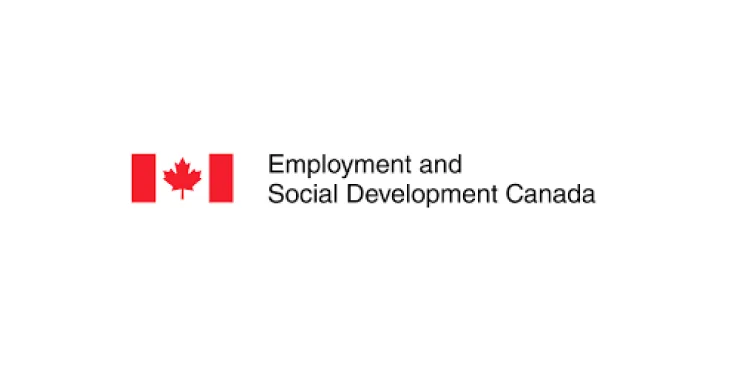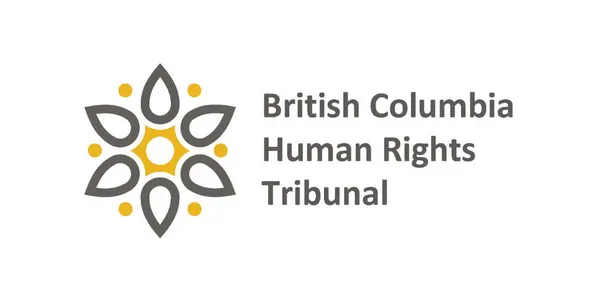
My employer told me I'm being fired for "just cause." Do they have to give me notice?
Getting let go can come as a shock, and it may feel unfair. In some cases, it is unfair — and against the law. There are rules your employer must follow if they fire you. Learn what they are, and steps you can take to protect your rights.
What you should know
Several factors affect your rights if you’re fired. Two key ones are whether you’re covered by employment standards law, and your employment contract.
Employment standards law
A BC law, the Employment Standards Act, sets minimum standards for employers in letting workers go. This law applies to “employees” — which covers most but not all workers in the province.
For example, independent contractors aren’t covered. Nor are workers in industries regulated by the federal government, or people in certain licensed professions. As well, the parts of the law dealing with dismissal don’t apply to some jobs, such as commercial fishermen. To learn if you’re covered, see our page on who’s covered by BC’s employment standards law.
Your employment contract
Second, your employment contract may include terms that deal with how your employment can be ended. (Note there’s always an employment contract between a worker and an employer, even if nothing is in writing.)
Your contract rights may be greater than your rights under employment standards law (if that law applies to you). But your contract rights to certain things, such as pay and notice, cannot be less than the minimum standards the law sets. If they are, you’re still entitled to the minimum protections of the law.
Generally speaking, your employer can fire you whenever they want as long as they give you notice of termination. (There are exceptions, explained shortly.)
There are two ways your employer can give you notice:
They can warn you in advance they plan to let you go. The time between the advance warning and the end of your employment is called the notice period.
They can let you go right away, but then they have to pay you out. That is, they have to give you the money you would have earned during the notice period. This money is called severance pay.
For workers covered by the Employment Standards Act, there is a minimum notice your employer must give you depending on how long you’ve been in the job. Your employment contract might say you get the employment standards minimum notice. If your contract is silent on notice, you are entitled to “reasonable” notice, which might be more than the minimum. For more on this, see our guidance on how much notice an employer needs to give you.
“When I was working as bartender, I sometimes pocketed money when customers paid in cash. My supervisor caught me, and gave me a warning. I kept doing it. The third time my supervisor caught me, she fired me on the spot. That woke me up."
– Jamie, Maple Ridge, BC

If you do something seriously wrong, an employer can fire you for just cause. In these situations, the employer doesn’t have to give you notice of termination.
What is just cause?
Just cause behaviour is where you do something seriously incompatible with the employment relationship continuing — to the point the employer cannot be expected to give you another chance.
For example, your employer might have just cause to fire you if you:
are dishonest about something important
steal from your employer
put yourself into a conflict of interest (for example, setting up a business to compete with your employer)
use drugs or alcohol in a way that interferes with your job performance
intentionally disobey your boss
repeatedly breach a clear workplace policy or rule
The burden of proving just cause is on the employer. In all but the most serious cases of misconduct, you are entitled to receive warnings and opportunities to improve before being dismissed for just cause.
Look carefully to see if there is just cause
If your employer fires you for just cause, they have to tell you what the reason is. Consider whether the reason really amounts to just cause.
For example, if you’re fired because your employer is losing money, going out of business, or reorganizing, those things are not just cause. Nor is being fired because your job becomes redundant or is eliminated by technological change. In all these cases, the employer must give you notice.
If you don't think your employer had grounds to fire you for just cause
There are many factors in play in a “just cause” dismissal. If you don’t think your employer had grounds to fire you for just cause, see the “Work out the problem” section below.
Getting fired for just cause is one situation where notice of termination is not required. There are some others. For example, notice is not required if:
you quit or retire
you work on an on-call basis doing temporary assignments that you can accept or reject
you’re employed for an agreed-upon length of time
you’re hired for specific work to be completed in 12 months or less
you work at a construction site, and your employer’s principal business is construction
you refuse to accept another similar job
If an employer is unhappy with your job performance, they can’t just fire you out of the blue — they must give you notice of termination. (For how much, see our guidance on how much notice an employer needs to give you.)
That said, an employer can let you go for poor performance (and not give you notice) if they can show all of the following:
They established a reasonable standard of performance.
They communicated the standard to you.
You were clearly warned your performance was below the established standard — and that continued failure to meet the standard would result in dismissal.
You were given a reasonable amount of time and assistance to meet the required standard of performance.
You still failed to meet the standard.
Your employer can’t fire you for raising a health or safety issue or refusing unsafe work. If they do, you can make a complaint to WorkSafeBC.
If you’re covered by the Employment Standards Act (see who’s covered), your employer can’t fire you for doing something that’s permitted under this law. For example, you can’t be fired for any of the following:
Taking pregnancy or parental leave.
Taking an annual vacation if you’re entitled to it.
Refusing to sign an agreement that will affect your rights (for example, an agreement about how you’ll be paid for overtime).
Filing an employment standards complaint against your employer.
Your employer is breaking BC's human rights law if they fire you because of:
your race, colour, ancestry, ethnic origin, citizenship, or where you were born
your religious beliefs
a physical or mental disability that you have (including addiction)
the fact you have children, plan to have children, or are pregnant
your marital status (for example, married, divorced or single)
your gender
your sexual identity, gender identity, or gender expression
If you’re let go, and you believe it’s for one of these reasons, you can start a claim with the BC Human Rights Tribunal. Another option is to sue your employer for wrongful dismissal (see the “Work out the problem” section below).
If you are fired, your employer must pay all your outstanding wages and vacation pay — no matter why you are fired. The Employment Standards Act requires the employer to pay these amounts within 48 hours of firing you. (See if you’re covered by the Act.)
A record of employment — or ROE — is a kind of “receipt” of your job history. Your employer must give you an ROE when you stop working for them. The government uses your ROE to decide if you’re eligible to receive benefits such as employment insurance. (See “Work out the problem,” below.)
Your ROE must be issued within five days of the day you’re fired. Your employer can submit your ROE directly to Service Canada electronically, or prepare a paper copy and give it to you.
Ask for a reference letter
When you’re leaving a job, ask your employer if they’ll write you a reference letter. No law in BC says they have to, but most employers will do so as an act of good faith.
Work out the problem
If you are fired, there are steps you can take.
Step 1. Ask your employer why you've been fired. This can help you decide what to do next.
Step 2. Apply for benefits. Applying for employment insurance benefits can help you to pay your monthly bills while you’re unemployed.
Step 3. Start looking for work. You have a duty to seek new and comparable work.
Step 4. Gather relevant documents. It’s a good idea to create a paper trail.
Step 5. Consider your legal options. Depending on the situation, you may have as many as three options.
We explain these steps in detail below.
Legally speaking, your employer doesn’t need to give a reason for firing you — unless they are firing you for just cause. But you should ask anyway.
They may decide not to tell you. Or they may give you a reason that isn’t the full story. If they do give you a reason, however, this can help you decide what to do next.
If you take issue with your dismissal
If you disagree with the reason your employer gives for firing you, consider getting legal advice. There are options for free or low-cost legal help.
Losing a job can lead to financial stress in a hurry. It’s a good idea to apply for employment insurance (EI) benefits. These are temporary payments made to people who lose their job through no fault of their own.
EI benefits will help you to pay your monthly bills while you’re unemployed. You’ll also feel less pressure to accept a lowball offer from your employer.
There are time limits involved, so you should apply right away. We have step-by-step guidance on how to apply for EI.
(If you get severance pay from your employer, you might have to pay back some of the EI you get.)
Start looking for another job right away. You have a duty to seek new and comparable work, even during the notice period.
Keep detailed records of your job search, including copies of your application letters and emails, as well as any replies you get. Showing you took steps to reduce your losses is important if you decide to make a complaint or start legal action.
Collecting any documents related to your firing can help clarify your thinking. They also can serve as evidence, should you end up in a hearing or trial. And the material will be useful to a lawyer, should you decide to see one.
Types of information you should try to collect include:
your employment contract
paperwork your employer gave you when you were fired, including your record of employment
any letters, memos or emails that might help show why you were fired
documents or other things that show what you did to assert your rights as a worker
contact information of co-workers who may have seen or heard something that could help show why you were fired
If you’re dealing with serious work-related stress, consider getting medical treatment. Medical records are a very strong form of evidence.
If you think your employer breached your legal rights by firing you, it’s a good idea to get legal advice. A lawyer with employment law experience will be able to advise on your options to take action. Depending on the situation, you may have as many as three options.
Making an employment standards complaint
This is an option available to workers covered by the Employment Standards Act (see who’s covered). If you think your employer has breached this law, you can make a complaint to the Employment Standards Branch. This is the government office that administers the Act.
For the steps to take, see our guidance on making an employment standards complaint.
There are time limits for making a complaint: you have up to six months after your last day of work.
Filing a human rights claim
If your employer fired you for a reason that violates your human rights, you can file a claim with the BC Human Rights Tribunal. You may be able to recover any lost wages, or compensation for injury to your dignity or self-respect. You have up to 12 months after the human rights violation to bring a claim at the tribunal.
Making a human rights claim versus taking legal action
A human rights claim can be appropriate for lower-income workers who were hired for a short time. If you were in a job for a long time, or your employer behaved very badly, you might get more compensation by starting a legal action.
Starting legal action against your employer
If your employer clearly breached your rights by firing you, you may have to take more serious action. You may want to consider suing them for wrongful dismissal.
If your claim is for more than $5,000 and less than $35,000, you can sue in Small Claims Court. It’s faster and less complicated than suing in the BC Supreme Court. If your claim is for $5,000 or less, you can file online with the Civil Resolution Tribunal. This is an online tribunal that encourages a collaborative approach to resolving disputes.
If you do decide to sue, there are time limitations on filing lawsuits. Generally, the time limit is two years from when you were fired. There are steps you can take to extend the time limit and preserve your rights. A lawyer can explain your options, and help you decide on the best course of action.
Consider getting legal advice
It’s important to get legal advice in considering these options. Once starting on one of these paths, you may be legally prevented from using another process. It is also important to understand which option is best suited for your particular problem. If you don’t have a lawyer, there are options for free or low-cost legal help.
Common questions
No — unless your employer is firing you for just cause. In that case, they have to tell you what the reason is.
If your employer is not firing you for cause, they don't have to give you a reason for letting you go. Some employers withhold their reason as that way they’re less likely to say something that shows they fired you illegally. (Some reasons an employer might give for firing you aren’t legal. For example, if you’ve been let go because you have a disability.) See the “What you should know” section above to learn more about prohibited grounds for dismissal.
Likely not. To fire you for just cause, your employer must show you did something seriously incompatible with the employment relationship continuing — to the point the employer can’t be expected to give you another chance. A personality clash between you and your boss would rarely be enough. (If your behaviour was abusive, that’s different.)
If you think your dismissal was unfair, consider getting legal advice before accepting severance pay from your employer. Once you accept the offer, a court may say you’ve given up your right to sue. Take some time to think it over and get proper advice.
If your employer sells the business, they can give you written notice of termination. Then, if you work for the new employer that bought the business, you start as a new employee.
But when they sell the business, if your employer does not give you written notice, and you work for the buyer, you have the same length of service as if the business had not been sold. If the buyer then wants to end your employment, they must give you written notice based on your total length of service with both employers, the seller and the buyer.
After letting you go, an employer might offer you your old job back, or a similar job at the same pay. If you refuse that offer, you have to have a very good reason. If not, you may not get severance pay after the date you refuse.
Who can help

Employment Standards Branch
The BC government office that deals with complaints against employers.

Employment and Social Development Canada
Deals with complaints against employers in federally-regulated industries.

BC Human Rights Tribunal
Deals with discrimination complaints under BC law.

WorkSafeBC
Deals with complaints about unsafe working conditions and injuries on the job.

Service Canada
Can help with questions or concerns about employment insurance benefits.

Access Pro Bono's Legal Advice Clinics
Volunteer lawyers provide 30 minutes of free legal advice to people with low or modest income.

Access Pro Bono’s Everyone Legal Clinic
Clinicians provide affordable fixed-fee services on a range of everyday legal problems.

BC Legal Referral Service
Helps you connect with a lawyer, notary or paralegal for a free 15- to 30-minute consult to see if you want to hire them.

BC Legal Directory
Search for a lawyer by community, area of law, or language spoken. From the Canadian Bar Association, BC Branch.

